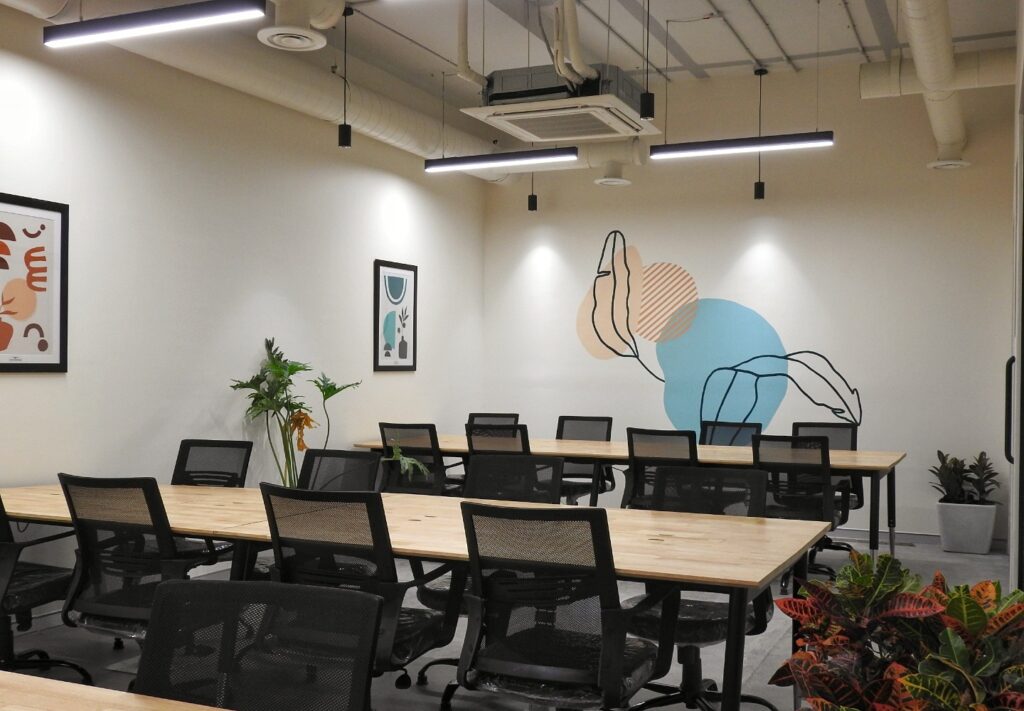Reducing operational costs and gaining more sales and revenue will help you to be as prosperous as possible. Whether it is by eliminating some costs with COGS, labor, and more. But before that we can take small easy steps by controlling small expenses.
Controlling the small expenses isn’t very difficult though the first critical step is to ‘identify them’ and know which ones can you reduce. First let us understand what operating costs are.
Operating costs, in general, are the expenses that keep the firm working on a daily basis. This is made up of a combination of fixed and variable costs. Fixed expenses are constant, but variable costs might fluctuate on a regular basis.
Here are 10 tips that will help you to achieve your budgetary goals without affecting the quality or performance.
Minimise electricity bill
One of the finest energy-saving ideas for small businesses is to turn off any non-essential gadgets. The majority of modern electronics and other devices use standby electricity. This implies that even if they are not turned on, they use energy if they remain plugged in. Along with turning off unnecessary gadgets try to use maximum daylight and use energy-efficient light bulbs. LED light bulbs save up more energy than standard lights. By substituting laptops for desktop PCs, you can save energy. Approximately 80% less energy is used by laptops than by desktop PCs. You can make sure that all of your computers are among the most energy-efficient ones if you are forced to use desktop PCs.
Go Paperless
Because of the availability of mobile applications, internet software, and digital storage systems, creating a paperless workplace has become a relatively attainable aim. Although going paperless requires time and resources, the advantages far outweigh the drawbacks. Going digital enhances process efficiency and saves money. Paperless workplaces typically process far more paperwork in the same amount of time as traditional offices. Furthermore, digitalization saves money on paper, printers, ink, mail, office space for files, and staff time spent managing paperwork.
Start Marketing Your Business Online
It’s a good idea to start with marketing expenditures when analysing your budget. With the rise of online marketing, some of the more costly, unproductive approaches may be replaced with better, more creative alternatives. You may begin with a business blog, social media marketing, or other online advertising and perhaps receive a response quite fast with very little business expenditures. Hiring an experienced in-house marketing executive may be costly, and with so many marketing channels to choose from, deciding where to focus can be difficult. Consider interviewing marketing companies to benefit from their knowledge and skills in helping your company expand. Typically, agencies will present a proposal with recommendations and budgets to assist you in selecting the best outsourced marketing partner for your needs.
Reduce business travel expenses
Reducing business travel costs may appear difficult, especially if your employees travel to different locations around the world. However, there are several ways for your company to save money by knowing where to cut corners without jeopardising employee safety. Commuting and travel expenses account for a sizable portion of a company’s overall operating expenses. Instead of holding meetings and presentations in person, organise them online to save money and time. Choose video telephony software that can be an excellent tool for conducting online meetings, webinars, and presentations. Choose a more cost-effective or low-budget option for travel or lodging if necessary. Create a company travel policy with clear processes and rules to assist your staff in making selections within your policy limitations while incurring no additional charges.
Explore an Alternative Place of Business

The costs associated with having a physical location for your business might be enormous, and in many circumstances, this is inevitable. You may be able to significantly cut your company expenditures by shrinking your retail location, considering a co-working arrangement, or even turning your firm to a home-based business and allowing staff to telecommute. Communication is available in a variety of ways in our technologically advanced environment so a Allowing employees to work remotely is therefore very effective and advantageous for both the company and the employees.
Make and maintain a Business Budget
There are many things to keep track of while starting a business, from marketing and acquiring new clients to creating a website and establishing your digital presence. But there is one aspect that you must keep track of from the start, and that is your business budget. A business budget is a summary of your company’s finances. It provides crucial information about both your present financial situation (including income and spending) and your long-term financial objectives. Because your budget is so important in making solid financial decisions for your company, it should be one of the first things you work on. Because it’s impossible to make wise financial decisions without a clear understanding of the money you have coming in and going out of your business every month, budgeting and decreased business costs go hand in hand. The way you use a business budget on a daily basis may transform it into a powerful instrument for effectively decreasing expenditures.
Increase employee satisfaction
Employees that are underpaid, and undervalued likely to put up less effort and hard work, which promotes workplace churn. Employees that are a burden on the firm raise operational costs since they do not carry their weight. The development of solutions to improve and boost work happiness for workers must be high on the firm’s priority list if the company is to continue to prosper, since employee retention, productivity, and engagement are progressively ranking among the most critical challenges in modern business. Employee happiness is one of the most potent, and often neglected, methods for businesses to minimise operational costs. According to studies, when employees feel appreciated, respected, and understood, their level of productivity rises, increasing the degree of benefit and profit companies may derive from their employees.
Make smarter hiring decisions.
Reduce annual HR costs by making wise recruiting decisions, such as seeking candidates with diverse talents. If your new administrative assistant knows content marketing, for example, that’s a great advantage. Another option is to use contractors rather than full-time workers. For ad hoc projects, many small firms resort to excellent expert freelancers. This technique has transformed the way startups compete in today’s market with established enterprises. Hiring freelancers and interns may be a cost-cutting genius for small firms. Hire contract specialists for as long as it takes to complete the task; you do not have to pay them if there is no work. The task is completed, and the overhead is not added to your payroll obligations. It’s a win-win situation for everyone.
Reduce Credit Card Debt
Small company credit cards are among the most popular forms of debt financing for small enterprises. Credit card debt is a sort of high-interest revolving debt, which means that consumers can borrow up to a set amount each month. During an unanticipated financial emergency, debt may be a beneficial safety net. Credit card debt, on the other hand, may lead to a hazardous spiral of expenditure and interest if used recklessly. Many company owners must take out a loan or charge a credit card amount to cover one-time costs, invest in future development prospects, cope with cash flow deficits, or settle receivables from slow-paying clients. As a result, in order to minimise credit card debt, paying off debts on the card with the highest interest rate first reduces your overall interest outlay since unpaid dues with higher interest rates gather interest more quickly. If you find yourself unable to settle your credit card balance, contact your bank and request that it be converted into a monthly payment (EMIs).
Barter your services
Individuals and businesses exchange commodities and services based on similar assessments of pricing and goods. Whether you are establishing or expanding a small business, employing a barter system conserves working cash for your business. When it comes to barter services, the most important priority you should establish is recognising what you have of worth that other people desire, as well as what you need to expand your business. For example, you may require office supplies or marketing services; therefore, you must first determine if your demands are concrete or intangible and design your strategy accordingly.
To Conclude
Reduced operating costs are not a one-time task. It is an ongoing process that will always go on. Which is why, your greatest chance of running a profitable business is to become more adept at budgeting. Each of these ten strategies to save company costs focuses on making a different choice that will save you money. As you can see, little adjustments may have a big impact on the company.


0 Comments